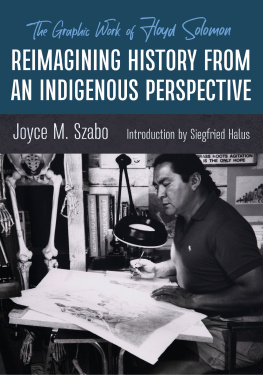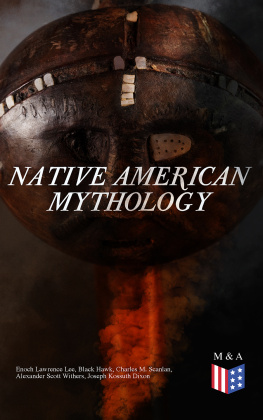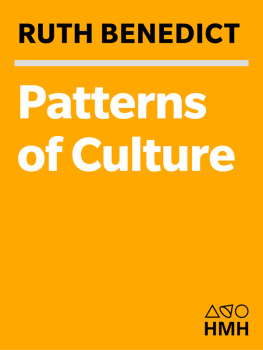The Zunis
The Zunis
Self-Portrayals
The Zuni People
Translated by Alvina Quam
ISBN for this digital edition: 978-0-8263-4565-3
1972 by The Pueblo of Zuni.
All rights reserved. Published 1972
Printed in the United States of America
20 19 18 17 16 15 4 5 6 7 8 9
The Library of Congress has cataloged the printed edition as follows:
The Zunis; self-portrayals, by the Zuni people.
Alvina Quam, translator. [1st ed.]
Albuquerque, University of New Mexico Press [1972]
ISBN 978-0-8263-0253-3 (pbk. : alk. paper)
1. Zuni IndiansLegends.
2. Zuni literatureTranslations into English.
3. American literatureTranslations from Zuni.
I. Quam, Alvina, tr.
E99.Z9Z86
398.2'09701
72-86817
MARC
Foreword
In 1965 the Zuni tribe, using funds allocated by the Office of Economic Opportunity, made plans to record their oral literature. The major storytellers of the tribe were gathered and asked to relate on tape the legends, myths, and history of the Pueblo. Thus has been recorded the entire body of literature of one of the most interesting tribes of this hemisphere.
In 1968, Dr. C. Gregory Crampton of the Duke Indian Oral History Project at the University of Utah joined with the tribe to support the translation of this material. The recording and translation were managed at the Pueblo by Quincy Panteah. As Alvina Quam began translating the tapes, it was immediately apparent that the material had great cultural relevance, so those of us connected with the Duke Project and the Zuni High School placed some of these legends in the school where they could be used for educational purposes.
Using money from the Bureau of Indian Affairs, Research and Cultural Studies Development Section, headed by Dave Warren, the Governor and Council appointed Mrs. Virginia Lewis to review and edit the legends, stories, and tales with an eye to publication. The final choices were approved by the Governor and the Council. Representing the Center for Studies of the American West, University of Utah, and the Duke Project, I have had the pleasure of working with the Governor, the Council, Mrs. Lewis, Mr. Panteah, and finally with the University of New Mexico Press. Everyone involved in the project has taken great care to preserve the cultural integrity of the Zuni people as presented in this book. Indeed, the book is the work of the Zuni people. I have been flattered that they would accept my small role as coordinator of efforts to bring this fecund and colorful body of literature to their friends and the public at large.
Floyd A. ONeil
Assistant Director
Center for Studies of
the American West
Introduction
First fruits of a harvest arrayed in the center of a roomthe family gathered around for the ritual of Thanksgiving.
The man and son, taking the store of pion nuts gathered by a pack rat for winter eatingreplacing the take with an equal amount of grain.
The man and son, with cornmeal, saying a prayer asking the Keeper of our lifes road to replace the young Christmas tree they will cut.
Simple thingsgood things!
Prophecies of old, told by the old to the youngcoming true. The dos and donts for a long and good life.
Briefly, this is the way of my people.
Stories told with morals attached, characters, whether fictional or true, that symbolize these ways have kept us together so long.
We are proud to present this, the first volume of stories told by the oldest members of my Zuni people, for your reading enjoymentthe old and young, in classroom or home.
Robert E. Lewis
Governor, Pueblo of Zuni
CONTENTS
THE ZUNIS
Self-Portrayals
I SOCIETY
1Prophecies of Our Grandparents
Many years ago when our grandparents foresaw what our future would be like, they spoke their prophecies among themselves and passed them on to the children before them.
Cities will progress and then decay to the ways of the lowest beings. Drinkers of dark liquids will come upon the land, speaking nonsense and filth. Then the end shall be nearer.
Population will increase until the land can hold no more. The tribes of men will mix. The dark liquids they drink will cause the people to fight among themselves. Families will break up: father against children and the children against one another.
Maybe when the people have outdone themselves, then maybe, the stars will fall upon the land, or drops of hot water will rain upon the earth. Or the land will turn under. Or our father, the sun, will not rise to start the day. Then our possessions will turn into beasts and devour us whole.
If not, there will be an odor from gases, which will fill the air we breathe, and the end for us shall come.
But the people themselves will bring upon themselves what they receive. From what has resulted, time alone will tell what the future holds for us.
2Zuni Witchcraft
In about the middle of autumn when the rains came abundantly, a person not in his right senses, called a witch, went about the shrines of Ahauda, praying for them to stop the rain.
First he went to the shrines of Towayalane and prayed to the images of the Ahauda that they would stop the rain. In about a month interval, he went to Hanging Cotton, where he prayed again.
At that particular time, a man returning from hunting in the east sat down to rest, tying the horses legs and putting the deer he had killed on the ground. When he again sat down, there came a gush of wind, followed by a small funnel of wind. It stopped short of the tree where the man sat watching. When the funnel of wind stopped, amidst it, there stood a person, the man named A-wah-gon-neh, the witch. He looked about as if looking for someone. But he acted as if he could not see anything.
Each time he stepped in the whirlwind and started to whirl, it would whirl a few times and stop. When he had done that several times, the horse hobbling about came a little way from the tree and A-wah-gon-neh saw it. He looked closer and saw a man sitting under the tree, so he approached him.
Hey, what are you doing way out here? I am doing a sacred ritual, but it will not work because you are watching.
Oh? Is a religious person supposed to walk around prepared the way you are? You wear yucca around your ankles and across your chest. And the owl feathers, why are you wearing these things? You are one from the witch society. Our fathers spoke many times of the powers of the evil ones.
A-wah-gon-neh did not rely, and the man asked, What are you doing anyway?
It is the rain that brought me here. I do not want rain. I first went to Towayalane to the shrine, and to the Hanging Cotton, and I was getting ready to go to the east shrine of Twin Buttes, when you discovered what I was doing. But now I am finished, I cannot use my powers any more.
Are you positive? Are you sure you will not continue to be a hindrance to your people?
No, I will not do anything else.
Well, I shall go now.










